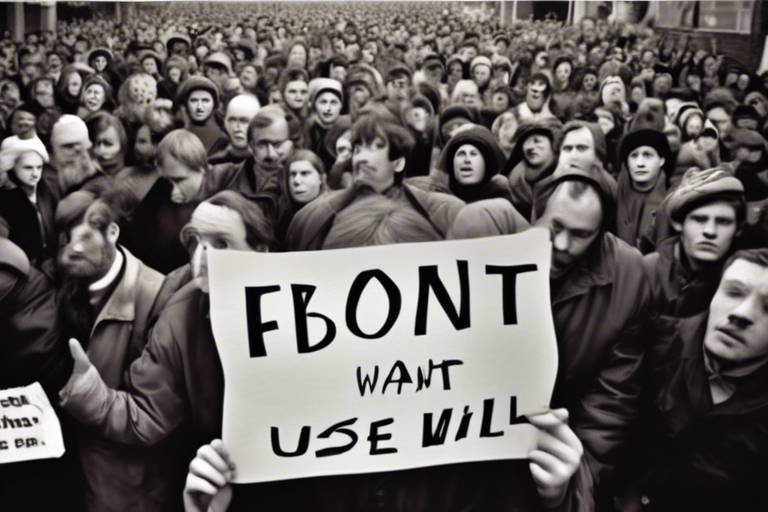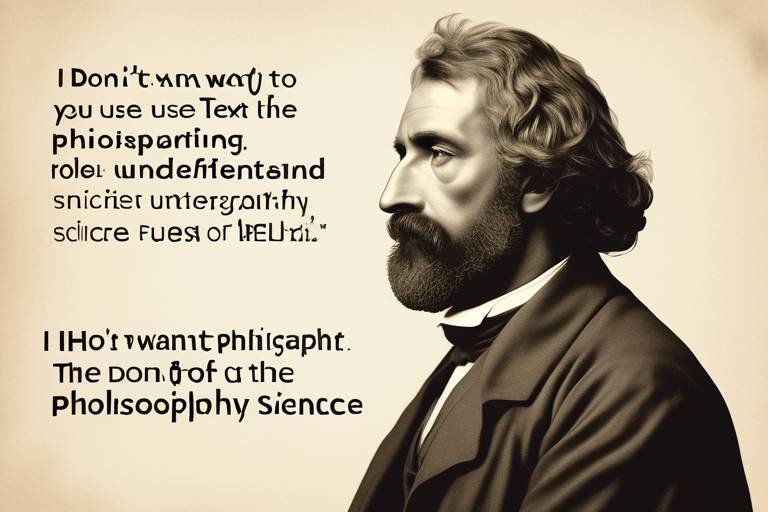A Philosophical Examination of Poverty
Poverty is a multifaceted issue that transcends mere financial deficiency; it is a profound societal dilemma that raises numerous philosophical questions about morality, justice, and human dignity. In our modern world, where wealth disparity is glaringly evident, understanding poverty is not just an academic exercise but a moral imperative. It's essential to peel back the layers of what poverty truly means, not just in terms of economic statistics but in the lived experiences of individuals. How do we define poverty? Is it merely the absence of money, or does it encompass a deeper sense of disenfranchisement and lack of opportunity? These are the questions that compel us to think critically about the fabric of our society and our role within it.
At its core, poverty can be seen as a deprivation of essential resources—be it financial, social, or emotional. This deprivation can take various forms, including absolute poverty, where individuals lack the basic necessities of life, and relative poverty, where individuals may have some resources but still fall short compared to their peers. Philosophically, this distinction is crucial as it leads us to consider not just the material aspects of poverty but also the social constructs that perpetuate it. The implications of poverty extend beyond the individual, affecting families, communities, and entire nations. Thus, examining poverty through a philosophical lens invites us to question our values, our priorities, and our responsibilities to one another.
Moreover, the persistence of poverty in a world of abundance poses a significant ethical challenge. It prompts us to consider the moral responsibilities that come with wealth and privilege. Should those who have prospered in society feel an obligation to assist those who have not? This question is not merely theoretical; it has real-world implications for policy-making, social welfare programs, and individual actions. The philosophical discourse surrounding poverty encourages us to reflect on the kind of society we wish to build. Are we comfortable with a system that allows for such stark inequalities, or do we aspire to create a more equitable world?
In this article, we will embark on a journey through the various philosophical perspectives on poverty, exploring the ethical implications, societal perceptions, and the narratives that shape our understanding of this complex issue. By delving into the nature of poverty and the roles of justice and empathy, we aim to illuminate the pathways toward a more compassionate and just society.
Understanding poverty requires examining its definitions, types, and the various factors contributing to its prevalence in society. This section will explore the philosophical perspectives on what constitutes poverty.
This section discusses the moral responsibilities of individuals and societies toward those living in poverty. It considers whether wealthier individuals have an obligation to assist the less fortunate.
Justice plays a crucial role in addressing poverty. This subsection will explore theories of justice and how they relate to economic disparity and social welfare.
Distributive justice focuses on the fair allocation of resources. This part examines how different philosophical frameworks propose solutions to economic inequality.
Retributive justice addresses the consequences of actions leading to poverty. This subsection will analyze the implications of punishing or rewarding individuals based on their socio-economic status.
Utilitarianism evaluates the consequences of actions based on overall happiness. This section will explore how utilitarian views influence policies aimed at reducing poverty.
Societal attitudes toward poverty can shape public policy and individual behavior. This section examines how cultural narratives impact the lives of those experiencing poverty.
Stigmatization often exacerbates the challenges faced by those in poverty. This subsection will discuss how stereotypes and misconceptions affect public perception and policy.
Fostering empathy can lead to greater social responsibility. This part will explore how understanding the lived experiences of the poor can inspire action and change within communities.
- What is poverty? Poverty refers to a state where individuals lack the financial resources to meet basic living standards, including food, shelter, and healthcare.
- What are the main causes of poverty? Causes of poverty can include economic factors, lack of education, unemployment, and systemic inequalities.
- How does poverty affect society? Poverty can lead to increased crime rates, health issues, and reduced economic growth, negatively impacting society as a whole.
- What can be done to alleviate poverty? Solutions may involve policy changes, community support programs, and initiatives aimed at education and job creation.
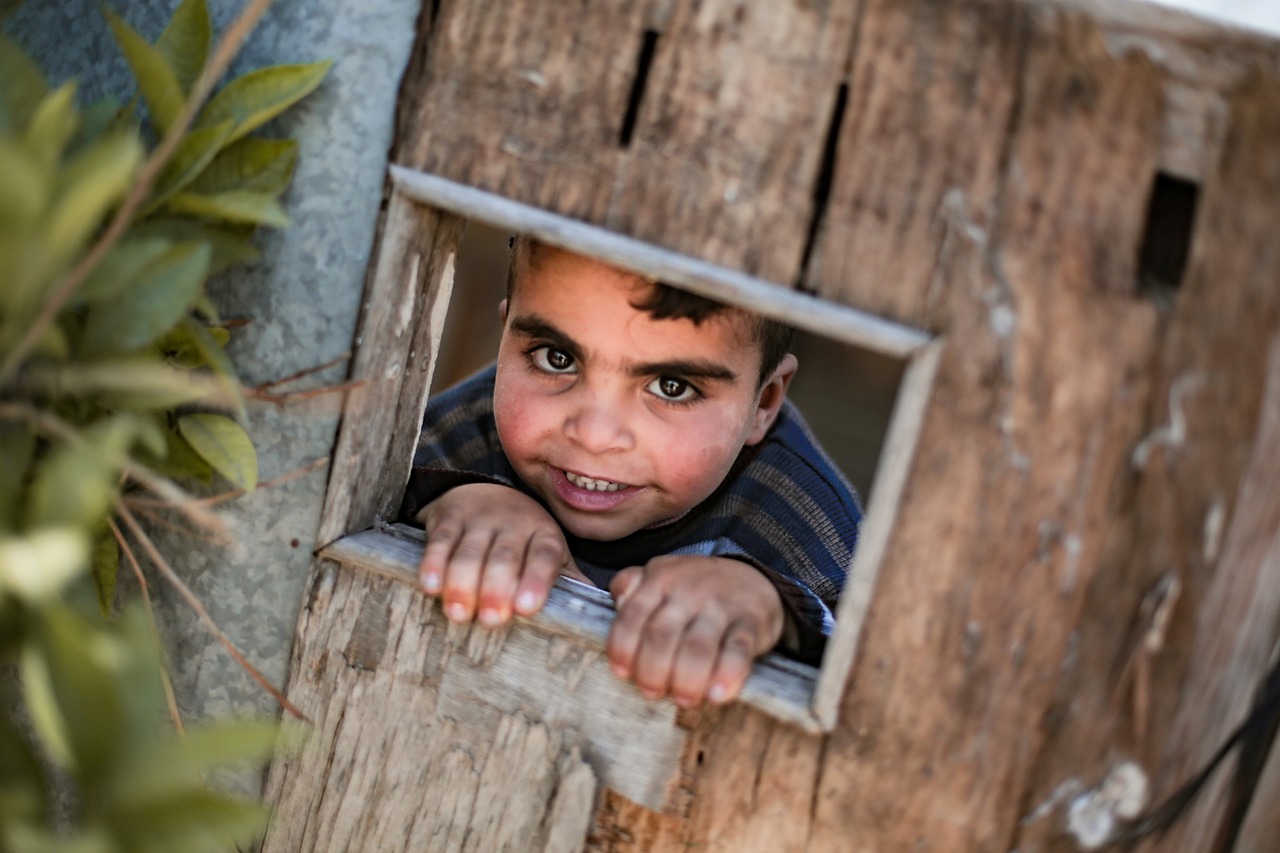
The Nature of Poverty
Poverty is a multifaceted concept that transcends mere financial deprivation; it encompasses a range of experiences that shape the lives of individuals and communities. To truly understand poverty, we must dissect its definitions, types, and the myriad factors that contribute to its persistence in society. At its core, poverty is often defined as the state of lacking sufficient financial resources to meet basic living standards, such as food, shelter, and clothing. However, this definition is just the tip of the iceberg. Philosophers and social theorists have long debated the nuances of poverty, revealing that it is not simply about income but also about access to opportunities, education, and social capital.
There are various types of poverty that exist, each with its own implications and consequences. These can be broadly categorized into absolute poverty and relative poverty. Absolute poverty refers to a condition where individuals cannot meet basic needs for survival, often living on less than $1.90 a day, as defined by the World Bank. On the other hand, relative poverty is more about the social context; it describes individuals whose resources are significantly less than the average, resulting in a lack of participation in societal norms and activities. This distinction is crucial as it highlights that poverty is not just a personal failing but a societal issue that reflects broader economic disparities.
Moreover, the factors contributing to poverty are complex and interwoven. They include but are not limited to:
- Economic factors: Unemployment, underemployment, and wage stagnation can trap individuals in a cycle of poverty.
- Social factors: Discrimination based on race, gender, or ethnicity can limit access to opportunities.
- Political factors: Ineffective government policies and lack of social safety nets can exacerbate poverty levels.
- Environmental factors: Natural disasters and climate change disproportionately affect the poorest communities.
Philosophically, poverty challenges our understanding of justice and equality. It raises profound questions about what it means to live a good life and the moral obligations we have toward one another. Are we, as a society, responsible for ensuring that all individuals have the means to thrive? Or does the responsibility lie solely with the individual? These questions are not merely academic; they have real-world implications that influence public policy and societal attitudes.
In conclusion, the nature of poverty is a complex tapestry woven from economic, social, and political threads. To tackle poverty effectively, we must first understand its intricate layers and the philosophical debates surrounding it. Only then can we begin to forge pathways toward a more equitable society where everyone has the opportunity to flourish.
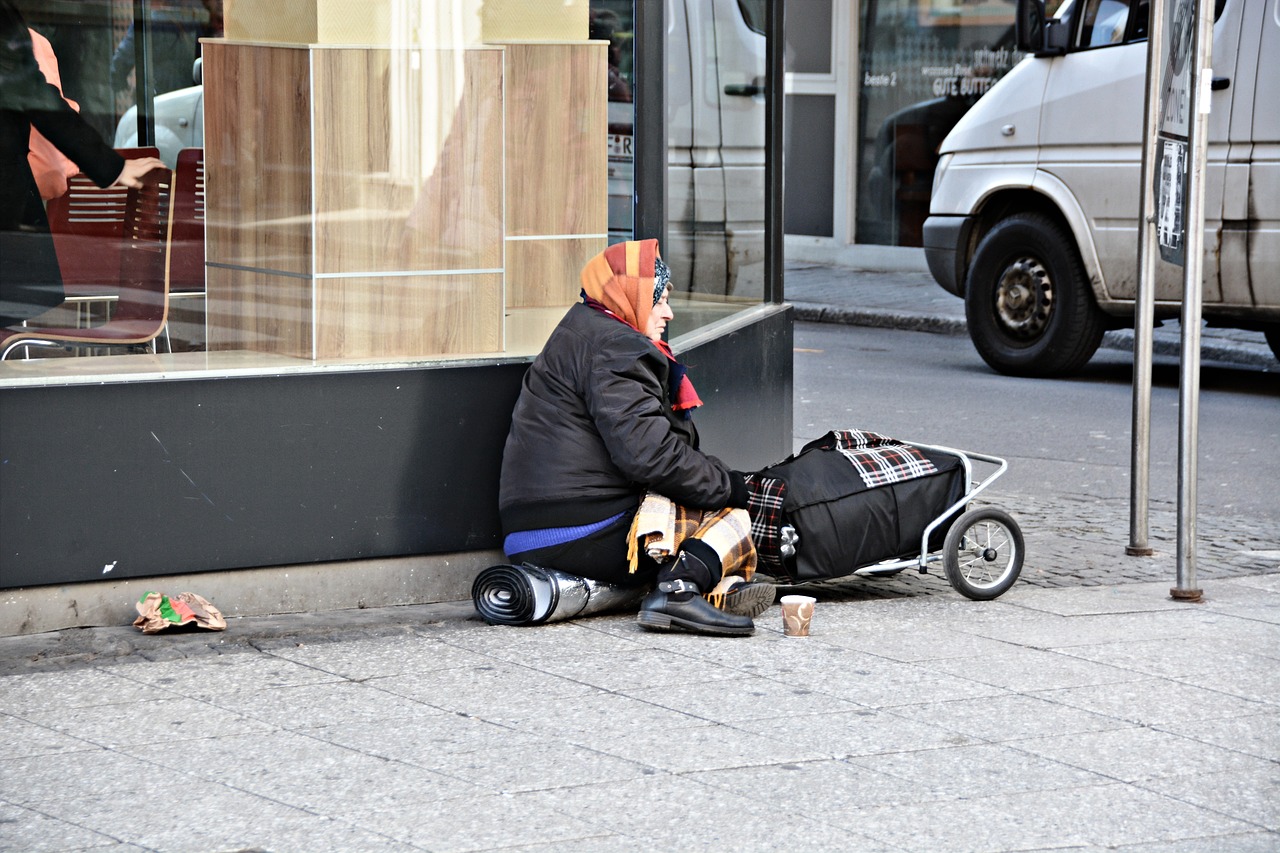
The Ethical Implications of Poverty
Poverty is not just a statistic; it’s a profound ethical dilemma that challenges our values and responsibilities as members of society. When we talk about poverty, we are delving into the moral obligations that arise from wealth disparities. Do we, as individuals or as a society, have a duty to aid those who are less fortunate? This question is at the heart of discussions surrounding ethical implications of poverty. The very essence of this debate hinges on our understanding of compassion, justice, and social responsibility.
At its core, poverty raises significant moral questions. For instance, should wealthier individuals feel compelled to help those in need? Many argue that the answer is a resounding yes. The idea of moral obligation suggests that those who have more should assist those who have less. This is not merely about charity; it’s about acknowledging our interconnectedness. When one person struggles, it can ripple through the fabric of society, affecting us all. In philosophical terms, this is often framed through the lens of utilitarianism, which posits that actions are right if they promote the greatest happiness for the greatest number. Thus, alleviating poverty can be seen as a moral imperative, not just a charitable act.
However, the ethical implications of poverty extend beyond individual responsibility. They also encompass the role of societal structures. Are our institutions designed to support those in need? Or do they inadvertently perpetuate poverty? This raises questions about systemic injustice. For example, consider how access to education, healthcare, and employment opportunities can be unevenly distributed. If society fails to create an equitable system, are we not complicit in the suffering of the poor? This notion suggests that societal structures must be scrutinized and reformed to ensure that they promote fairness and justice.
Moreover, the discussion on poverty also includes the concept of distributive justice, which focuses on the fair allocation of resources. Different philosophical frameworks offer varying solutions to economic inequality. For instance, some advocate for a more egalitarian approach, arguing that wealth should be distributed more evenly across society. Others might support a meritocratic system, where rewards are based on individual effort and talent. Yet, the challenge lies in defining what “fair” truly means. Is it fair to reward those who have had advantages in life while neglecting those who have not? This complexity illustrates why poverty is not simply an economic issue; it is deeply rooted in our ethical frameworks.
Another aspect to consider is retributive justice, which examines the consequences of actions that lead to poverty. Should individuals be punished for their socio-economic status? This perspective can be controversial, as it raises questions about personal responsibility versus systemic barriers. For example, if someone is born into poverty, is it just to blame them for their circumstances? Or should we focus on the societal failures that contribute to their plight? This is where the ethical conversation becomes even more intricate, as it forces us to confront our biases and assumptions about poverty.
Ultimately, the ethical implications of poverty challenge us to reflect on our values and responsibilities. They urge us to cultivate a sense of empathy and to recognize the humanity in every individual, regardless of their economic status. As we navigate this complex landscape, it’s crucial to foster a dialogue that not only seeks to understand poverty but also inspires actionable change. After all, addressing poverty is not just about alleviating suffering; it’s about creating a society where everyone has the opportunity to thrive.
- What is the primary ethical concern regarding poverty? The primary concern is the moral obligation of wealthier individuals and society to assist those in need.
- How does distributive justice relate to poverty? Distributive justice focuses on the fair allocation of resources and seeks to address economic inequalities.
- Can poverty be solely blamed on individual choices? No, poverty often results from systemic barriers and societal structures that limit opportunities.
- What role does empathy play in addressing poverty? Empathy fosters social responsibility and encourages individuals to take action to support those in need.

The Role of Justice
When we think about poverty, the concept of justice inevitably comes into play. Justice isn't just a lofty philosophical idea; it’s a practical framework that guides how we treat one another in society. So, what does justice mean in the context of poverty? It’s essential to understand that justice can manifest in various forms, each influencing how we address economic disparity and the plight of the less fortunate.
One of the most significant aspects of justice is its ability to provide a moral compass for society. It challenges us to consider not just the existence of poverty, but the underlying causes that perpetuate it. For instance, if we examine the philosophical theories of justice, we can better understand how they relate to the distribution of resources and opportunities. This leads us to explore two critical frameworks: distributive justice and retributive justice.
Distributive justice emphasizes the fair allocation of resources among individuals in society. Think of it as a pie that needs to be shared. The question here is: how do we slice that pie? Different philosophical perspectives offer various solutions. For example, some argue for an equal distribution, while others advocate for a needs-based approach, where resources are allocated according to individual circumstances. This raises important questions: Should wealth be distributed equally? Or should it be based on contributions to society? These debates are crucial in shaping policies aimed at alleviating poverty.
On the other hand, retributive justice deals with the consequences of actions that lead to poverty. It’s about understanding the societal structures that create barriers for individuals and whether those barriers should be punished or addressed through reform. Imagine a game where some players have all the advantages while others struggle to even get on the field. Is it fair to blame the players who are struggling for their misfortune, or should we be looking at the rules of the game itself? This analogy highlights the need to analyze the systemic issues that contribute to poverty, rather than solely focusing on individual failings.
Justice, in its many forms, plays a crucial role in addressing poverty. It compels us to ask hard questions and seek solutions that not only alleviate immediate suffering but also tackle the root causes of economic inequality. By fostering a sense of justice, we can create a society that not only recognizes the dignity of every individual but also actively works towards equitable solutions. The dialogue surrounding justice in relation to poverty is not just a philosophical exercise; it’s a call to action for all of us to engage in creating a fairer world.
- What is the relationship between justice and poverty?
Justice provides a framework for understanding and addressing the systemic issues that contribute to poverty, influencing how resources are distributed and how individuals are treated. - How can distributive justice help reduce poverty?
By advocating for fair allocation of resources based on need, distributive justice can help ensure that everyone has access to the necessities of life. - What role does retributive justice play in addressing poverty?
Retributive justice examines the consequences of actions that lead to poverty, encouraging society to address systemic barriers rather than blaming individuals.
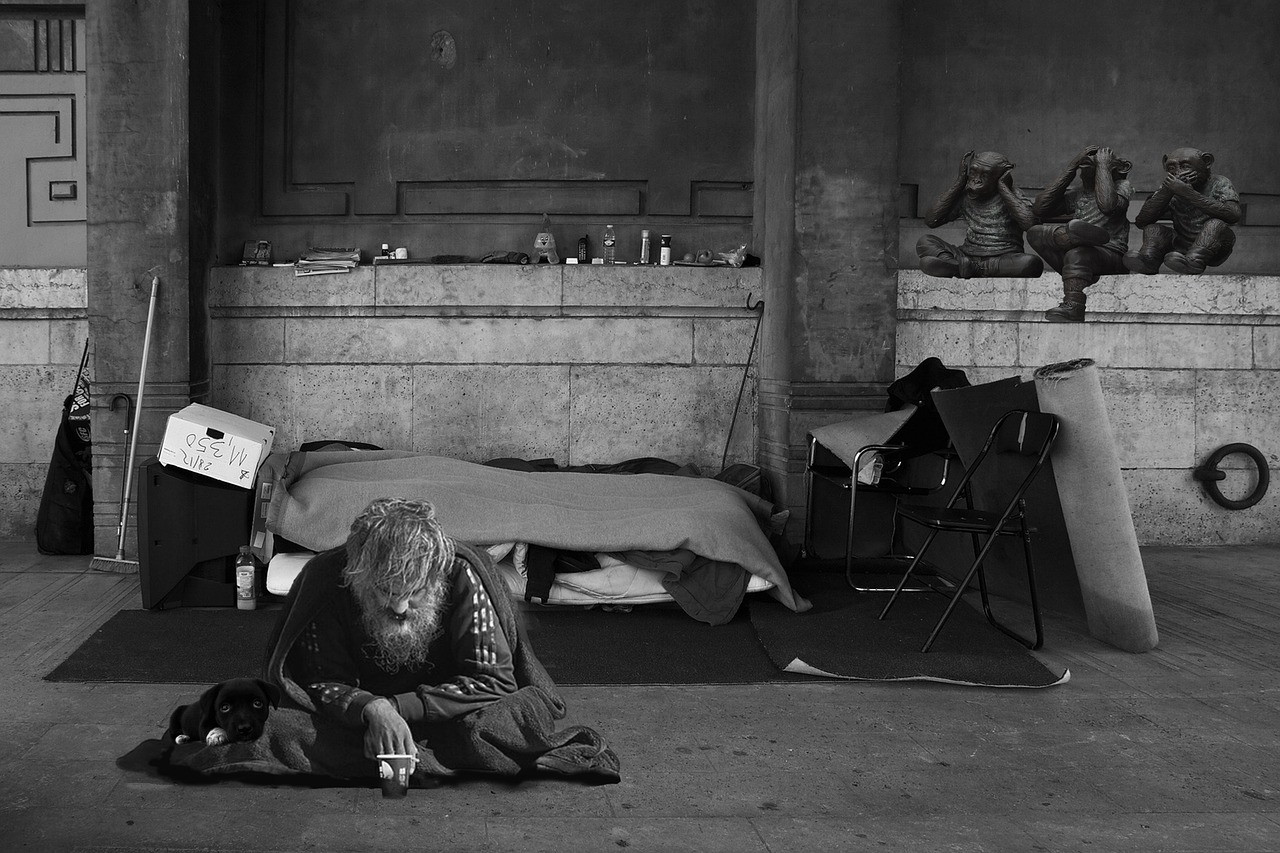
Distributive Justice
Distributive justice is a concept that revolves around the fair allocation of resources within a society. At its core, it raises profound questions about equity and morality: What does it mean to be fair? How should we distribute wealth, opportunities, and privileges among individuals? These questions are not merely academic; they touch the very fabric of our social existence. Imagine a community where resources are abundant yet unequally shared. It’s like a feast where some are served lavish portions while others are left with crumbs. This stark contrast highlights the ethical dilemmas we face in addressing poverty.
Philosophers have long debated the principles that should guide this distribution. For instance, John Rawls, in his seminal work "A Theory of Justice," proposed the "difference principle." This principle suggests that inequalities in wealth and resources are only justified if they benefit the least advantaged members of society. In simpler terms, it’s about ensuring that the rich don’t just get richer while the poor remain stuck in a cycle of deprivation. It’s a call for a more equitable society, where the success of one does not come at the expense of another.
Furthermore, distributive justice can be viewed through various philosophical lenses, each offering unique insights into how we might address economic inequality. Some frameworks advocate for a strict egalitarian approach, arguing that everyone should have equal access to resources. Others support a meritocratic system, where individuals earn their share based on their contributions. However, the challenge lies in determining what constitutes a fair contribution and who gets to decide. The debate is ongoing, and it’s crucial to consider the implications of each perspective.
To illustrate these concepts, let’s consider a table that outlines different philosophical approaches to distributive justice:
| Philosophical Approach | Key Principles | Implications for Poverty |
|---|---|---|
| Egalitarianism | Equal distribution of resources | May require significant redistribution of wealth |
| Meritocracy | Distribution based on individual effort and achievement | Can perpetuate existing inequalities if opportunities are not equal |
| Utilitarianism | Maximizing overall happiness | Focuses on policies that lift the majority, potentially neglecting the minority |
As we contemplate these frameworks, it’s essential to recognize that the implications of distributive justice extend beyond mere theory; they manifest in real-world policies and practices. For instance, social welfare programs, taxation policies, and public services are all influenced by our collective understanding of justice. When we advocate for changes in these areas, we are essentially pushing for a re-evaluation of how we perceive and address poverty.
In conclusion, distributive justice is not just an abstract philosophical concept; it’s a vital part of the conversation about poverty and inequality in our society. By engaging with these ideas, we can better understand our moral obligations and work towards a more just and equitable world. The challenge lies in balancing different philosophical perspectives while ensuring that the most vulnerable among us are not left behind.
- What is distributive justice? Distributive justice refers to the ethical principles that govern the fair allocation of resources among individuals in a society.
- Why is distributive justice important in addressing poverty? It helps to define our moral responsibilities towards the less fortunate and shapes policies aimed at reducing economic inequality.
- What are the different philosophical approaches to distributive justice? Key approaches include egalitarianism, meritocracy, and utilitarianism, each offering unique perspectives on resource allocation.
- How can understanding distributive justice impact public policy? A deeper understanding can lead to more equitable policies that prioritize the needs of the disadvantaged and promote social welfare.
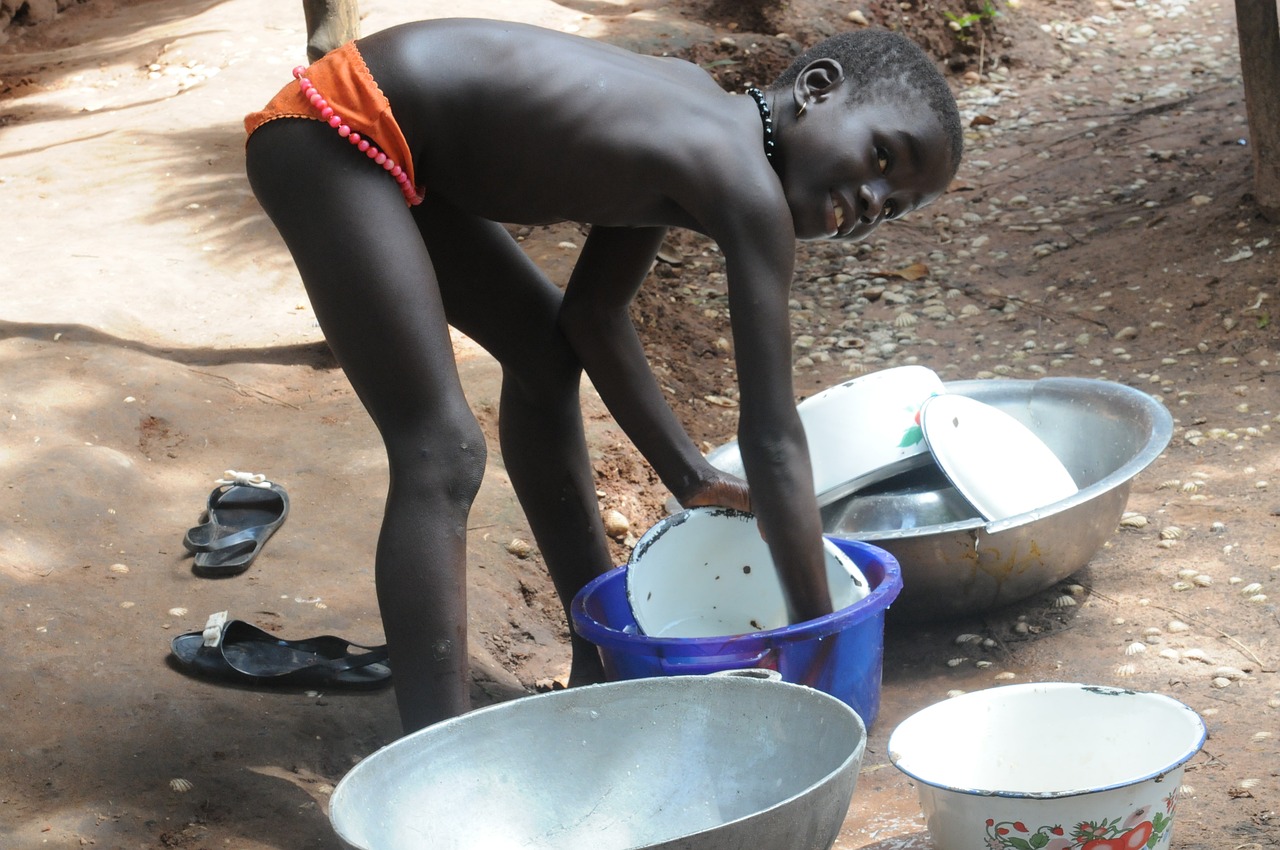
Retributive Justice
Retributive justice is a concept that revolves around the idea of punishment and its implications for those who find themselves in poverty. At its core, this philosophical framework seeks to address the consequences of actions that lead to economic disparity. Imagine a world where every decision has a ripple effect, influencing not just the individual but the broader community. When we consider poverty through the lens of retributive justice, we must ask ourselves: are individuals truly responsible for their socio-economic status, or are they caught in a web of circumstances beyond their control?
One might argue that retributive justice serves as a mechanism to hold individuals accountable for their actions. However, this perspective can become problematic when applied to poverty. For instance, many individuals living in poverty might have faced systemic barriers, such as discrimination, lack of education, or limited access to resources. Punishing these individuals for their socio-economic status could be seen as unjust, as it fails to consider the multitude of factors contributing to their situation. In essence, retributive justice in the context of poverty raises critical questions about fairness and accountability.
Moreover, the implications of retributive justice extend beyond individual accountability. It also influences societal attitudes toward poverty. When society adopts a punitive approach, it often leads to a stigmatization of the poor, reinforcing harmful stereotypes that suggest they are lazy or unmotivated. This can create a vicious cycle where individuals feel trapped in their circumstances, unable to break free due to societal judgment and lack of support. Thus, retributive justice can inadvertently perpetuate the very issues it seeks to address.
To illustrate this point, consider the following scenarios:
| Scenario | Retributive Justice Response | Potential Outcome |
|---|---|---|
| A single mother unable to secure stable employment | Punishment for perceived irresponsibility | Increased poverty and stress on the family |
| An individual facing addiction issues | Imprisonment for drug-related offenses | Cycle of poverty and criminalization |
| A young adult lacking access to education | Criticism for not achieving success | Perpetuation of socio-economic inequality |
As we can see, the retributive justice approach can lead to outcomes that exacerbate poverty rather than alleviate it. This raises the question of whether a shift towards a more restorative justice model could be more beneficial. Restorative justice emphasizes healing and reconciliation over punishment, focusing on understanding the root causes of poverty and addressing them collaboratively. By fostering a supportive environment, we can create pathways for individuals to escape the cycle of poverty, rather than further entrenching them in it.
In conclusion, while retributive justice aims to hold individuals accountable, its application in the context of poverty often results in unjust outcomes. It is essential to recognize the complex interplay between individual actions and systemic barriers, advocating for a more compassionate approach that seeks to uplift rather than punish. In doing so, we can work towards a society that values equity and justice for all.
- What is retributive justice? Retributive justice is a theory of justice that focuses on punishment for wrongdoing, based on the belief that offenders deserve to be punished in proportion to their crimes.
- How does retributive justice relate to poverty? Retributive justice can lead to punitive measures against individuals in poverty, often overlooking the systemic issues that contribute to their circumstances.
- What are alternatives to retributive justice? Alternatives include restorative justice, which emphasizes healing and rehabilitation rather than punishment, focusing on addressing the root causes of issues like poverty.
- Why is understanding poverty important in discussions of justice? Understanding poverty is crucial because it highlights the systemic barriers individuals face and encourages more equitable approaches to justice that promote social welfare.
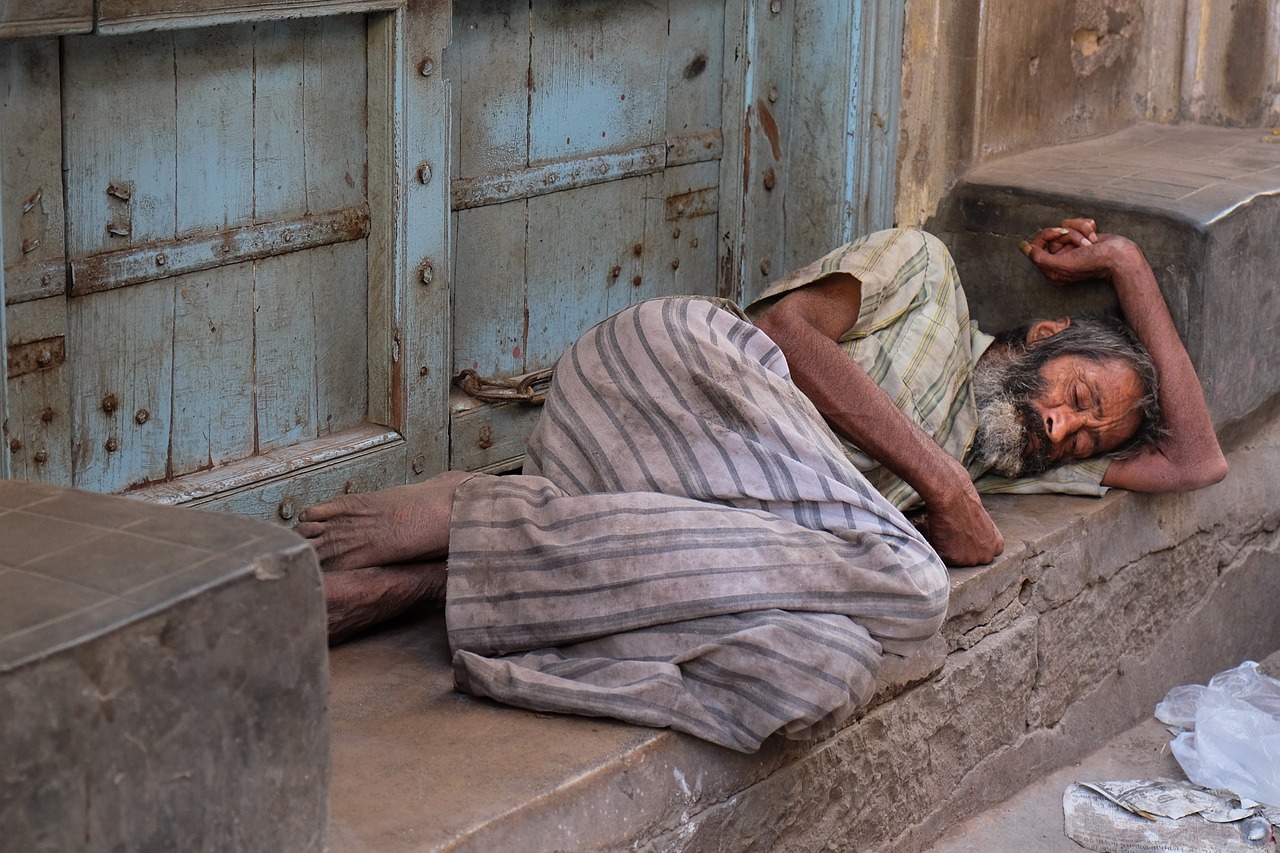
Utilitarian Perspectives
Utilitarianism, at its core, is a philosophical approach that evaluates the morality of actions based on their consequences, specifically in terms of overall happiness or utility. When we apply this lens to the issue of poverty, it raises some profound questions: How do we measure happiness? Who decides what constitutes a good outcome? And, importantly, what responsibilities do we have toward those who are suffering? In a society where the gap between the wealthy and the impoverished continues to widen, understanding the utilitarian perspective becomes crucial in shaping effective policies aimed at alleviating poverty.
From a utilitarian viewpoint, the primary goal of any action or policy should be to maximize happiness for the greatest number of people. This often leads to discussions about resource allocation and social welfare programs. For instance, consider a government that must decide between funding a new highway or investing in a comprehensive welfare program. A utilitarian would argue that if the welfare program significantly improves the lives of the underprivileged, thereby increasing overall happiness, it should take precedence. This brings us to the critical point: the **distribution of resources** is not merely a matter of economics but a moral imperative.
Moreover, utilitarianism encourages us to look beyond mere charity. It prompts us to ask whether our actions genuinely lead to sustainable improvements in the lives of those in poverty. For example, while donating to a food bank may provide immediate relief, a utilitarian analysis would also advocate for systemic changes that address the root causes of poverty, such as education, healthcare access, and job creation. This holistic approach not only alleviates suffering in the short term but also works toward a society where such poverty might not exist in the future.
However, utilitarianism is not without its critics. One significant concern is the potential for the **"tyranny of the majority."** In striving to maximize happiness for the majority, the needs and rights of minority groups can be overlooked. Imagine a scenario where a policy is enacted that benefits a large group of people but disproportionately harms a smaller, already marginalized community. This raises ethical dilemmas about the fairness of utilitarian calculations. How do we ensure that the happiness of the few is not sacrificed for the happiness of the many?
To navigate these complexities, some utilitarian theorists propose a more nuanced approach that incorporates **justice and fairness** into the equation. This perspective suggests that while maximizing happiness is essential, it should not come at the cost of violating individual rights or neglecting the needs of the vulnerable. Thus, a balanced utilitarian approach would advocate for policies that not only aim for the greatest good but also ensure that the most disadvantaged are not left behind.
In conclusion, the utilitarian perspective offers a valuable framework for addressing poverty, emphasizing the importance of outcomes and the collective welfare of society. As we consider policies aimed at reducing poverty, we must remain vigilant about the ethical implications of our actions, striving for solutions that uplift all members of society, especially the most vulnerable. After all, true happiness is not just about the wealth of the many but the well-being of everyone.
- What is utilitarianism? Utilitarianism is a philosophical approach that evaluates actions based on their consequences, aiming to maximize overall happiness.
- How does utilitarianism apply to poverty? It encourages policies that not only provide immediate relief but also address the root causes of poverty to enhance overall societal well-being.
- What are the criticisms of utilitarianism? Critics argue it can lead to the neglect of minority rights and the potential for the majority's happiness to overshadow the needs of the few.
- Can utilitarianism ensure fair treatment for all? A balanced approach that incorporates justice and fairness can help ensure that the most disadvantaged are not overlooked.
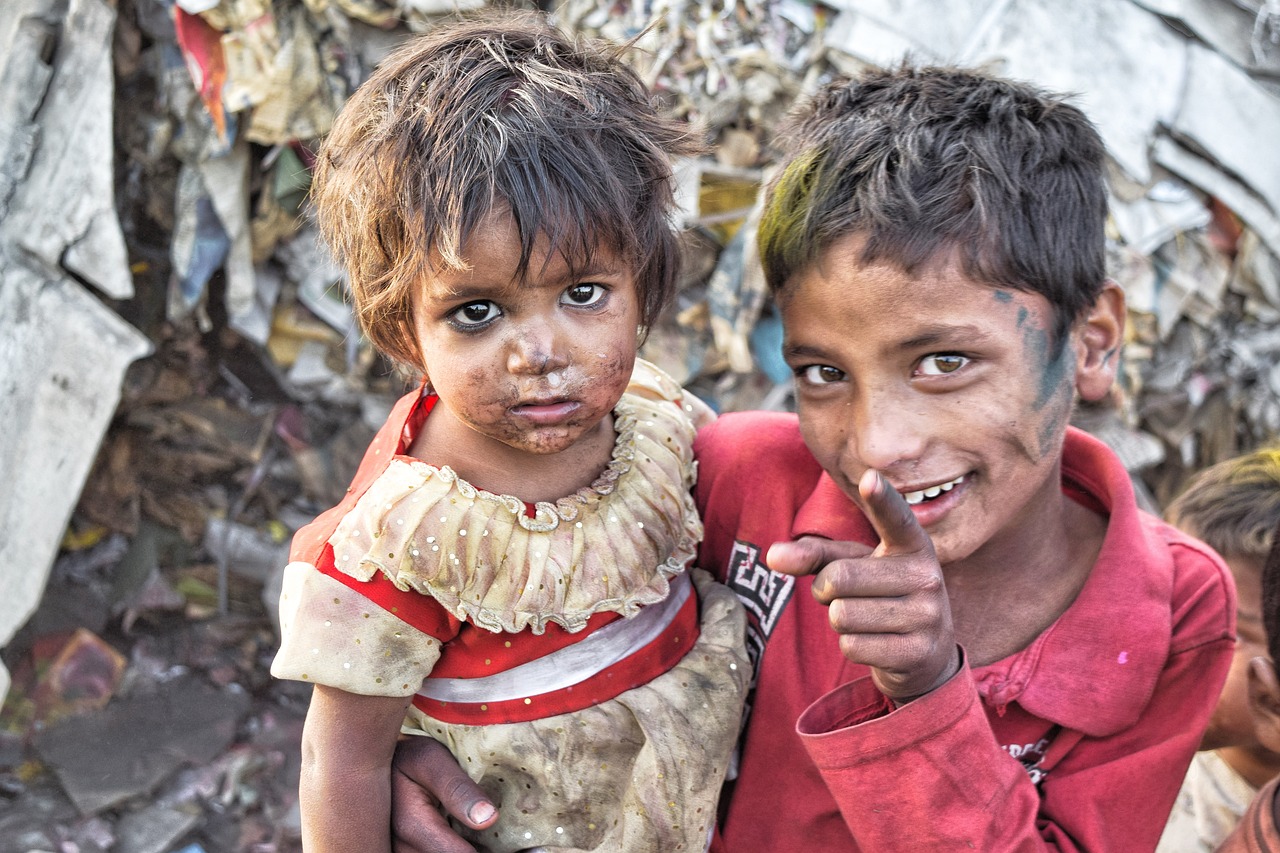
The Social Perception of Poverty
Poverty is not just a state of being; it’s a narrative woven into the fabric of society. The way we perceive poverty significantly influences how we respond to it, both as individuals and as a community. It’s fascinating how societal attitudes can shape public policy, individual behavior, and even the self-perception of those living in poverty. Imagine walking down a street where the faces of the impoverished are met with averted gazes and whispered judgments. This reaction stems from deeply ingrained cultural narratives that often portray poverty as a personal failure rather than a systemic issue.
In many cultures, poverty is stigmatized, leading to a cycle of misunderstanding and neglect. This stigma not only affects how society views the poor but also how those experiencing poverty see themselves. When individuals internalize negative stereotypes, it can lead to feelings of shame and hopelessness. The societal narrative often highlights the following misconceptions about poverty:
- Poor people are lazy: This stereotype ignores the systemic barriers that prevent individuals from achieving economic stability.
- Poverty is a choice: Many believe that those in poverty simply need to make better decisions, disregarding the lack of opportunities available to them.
- Poverty is temporary: While some may escape poverty, many face long-term struggles that require comprehensive support and understanding.
These misconceptions can lead to policies that fail to address the root causes of poverty. For example, when policymakers view poverty through a lens of individual responsibility, they may prioritize punitive measures over supportive ones. This can manifest in legislation that cuts social services rather than expanding them, perpetuating the cycle of poverty and reinforcing societal stigmas.
However, it’s not all doom and gloom. There’s a growing movement aimed at fostering empathy and understanding toward those living in poverty. By sharing stories and experiences, communities can begin to dismantle harmful stereotypes. Initiatives like community outreach programs and educational campaigns are crucial in reshaping the narrative around poverty. When people engage with the lived experiences of the poor, they often find common ground that fosters compassion and a sense of social responsibility.
Empathy can serve as a powerful catalyst for change. When individuals are encouraged to see the humanity in those who are struggling, they are more likely to advocate for policies that support economic justice. This shift in perception can lead to:
- Increased community support: Communities can rally together to provide resources and assistance to those in need.
- Advocacy for systemic change: Recognizing the structural issues behind poverty can inspire collective action aimed at reforming policies.
- Enhanced understanding: By fostering open dialogues about poverty, individuals can challenge their own biases and misconceptions.
Ultimately, the social perception of poverty is a double-edged sword. On one side, it can perpetuate stigma and discrimination; on the other, it has the potential to inspire empathy and action. As we navigate this complex landscape, it’s essential to challenge our own perceptions and consider how we can contribute to a more just society. The question remains: how can we shift the narrative around poverty to one of hope and solidarity rather than shame and blame?
Q: What are the main misconceptions about poverty?
A: Common misconceptions include the belief that poor people are lazy, that poverty is a choice, and that it is a temporary state for everyone.
Q: How does stigma affect those living in poverty?
A: Stigma can lead to feelings of shame and hopelessness, causing individuals to internalize negative stereotypes and further entrenching them in poverty.
Q: What can communities do to support those in poverty?
A: Communities can foster empathy through outreach programs, education, and advocacy for systemic changes that address the root causes of poverty.
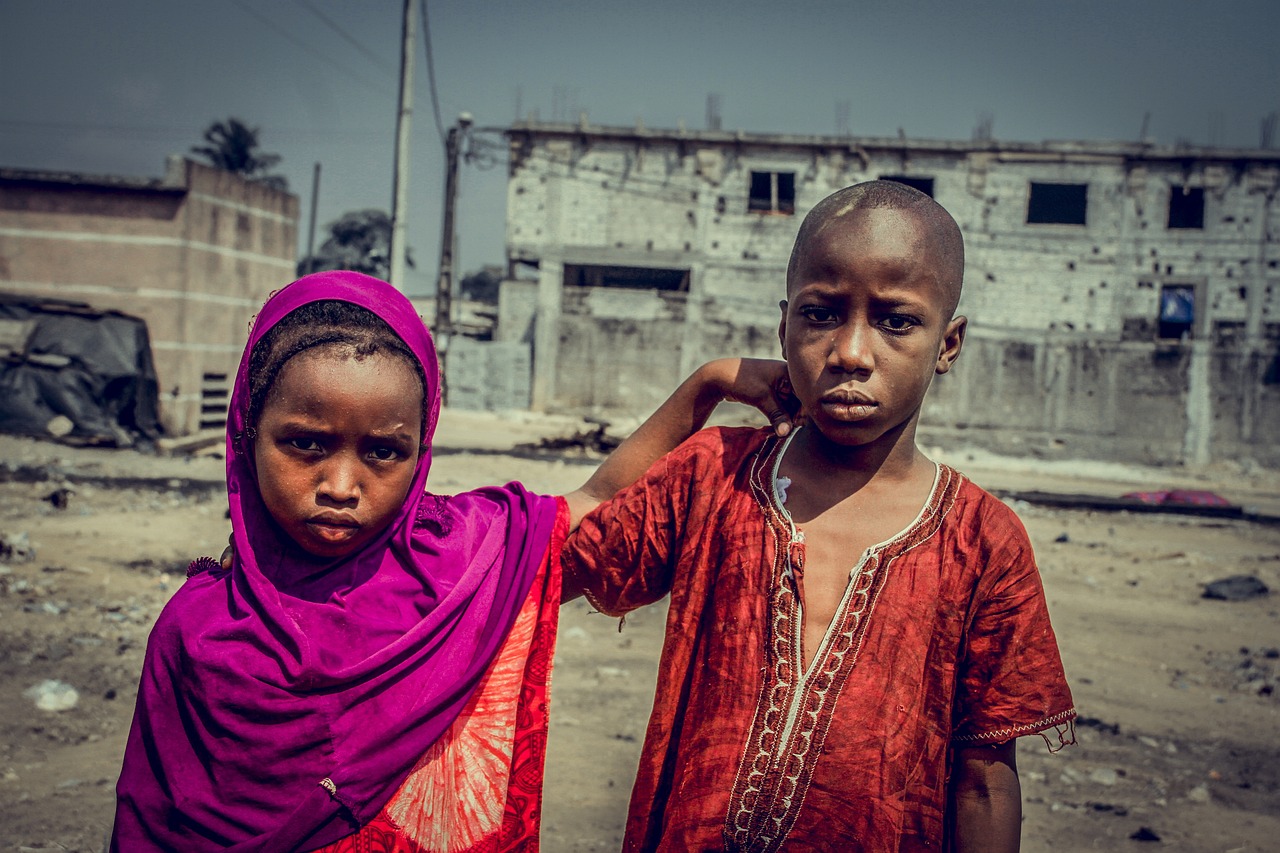
Stigmatization of the Poor
The stigmatization of the poor is a pervasive issue that not only affects individuals but also ripples through society, creating a cycle of misunderstanding and neglect. When we talk about poverty, it’s easy to fall into the trap of stereotypes that paint the poor as lazy, unmotivated, or even irresponsible. But here’s the kicker: these assumptions are often far from the truth. Most people living in poverty are working tirelessly just to make ends meet, facing barriers that those in wealthier positions may never even consider. This misrepresentation can lead to a lack of empathy and understanding, which further entrenches the very systems that keep poverty alive.
Imagine walking a mile in someone else's shoes—if those shoes are worn and tattered, it’s easy to overlook the journey that brought them to that point. The cultural narratives surrounding poverty often ignore the systemic issues at play, such as lack of access to quality education, healthcare, and job opportunities. Instead, society tends to focus on individual failings, which not only stigmatizes the poor but also diverts attention from the structural changes needed to combat poverty effectively. This stigma can manifest in various ways, including:
- Social Isolation: The poor may feel alienated from their communities, leading to a lack of support systems that could help them escape poverty.
- Employment Discrimination: Employers may be hesitant to hire individuals from lower socio-economic backgrounds due to preconceived notions about their work ethic or reliability.
- Access to Resources: Stigmatization can limit access to crucial resources like healthcare, housing, and education, perpetuating the cycle of poverty.
Moreover, the media plays a significant role in shaping public perception of poverty. Sensationalized stories often highlight the most extreme cases, reinforcing negative stereotypes while ignoring the broader context. This portrayal can lead to a societal belief that poverty is a personal failure rather than a complex issue influenced by various economic and social factors. It’s essential to challenge these narratives and advocate for a more nuanced understanding of poverty that recognizes the dignity and humanity of those affected.
Ultimately, combating the stigmatization of the poor requires a collective effort. By fostering empathy and understanding, we can break down the barriers that perpetuate these harmful stereotypes. Community engagement, education, and open dialogue are vital in reshaping perceptions and promoting social responsibility. When we begin to see the poor not as a monolithic group but as individuals with unique stories and challenges, we pave the way for meaningful change. It’s about time we shift the narrative and recognize that poverty is not a reflection of a person’s worth but rather a complex issue that requires compassion and action from all of us.
- What are some common misconceptions about poverty?
Many people believe that those living in poverty are simply lazy or do not want to work. In reality, many individuals facing poverty are working multiple jobs and still struggling to make ends meet due to systemic barriers.
- How can we reduce the stigma associated with poverty?
Education and awareness are key. By sharing stories and experiences of those living in poverty, we can foster empathy and understanding, which can help dismantle harmful stereotypes.
- What role does the media play in shaping perceptions of poverty?
The media often highlights extreme cases of poverty, which can reinforce negative stereotypes. A more balanced portrayal that includes the systemic issues surrounding poverty can help change public perception.

Empathy and Social Responsibility
When we talk about empathy and social responsibility, we’re diving into the heart of what it means to be human. Imagine walking in someone else's shoes, feeling their struggles, and understanding their pain. This connection is not just a nice idea; it’s a powerful catalyst for change. Empathy allows us to see beyond our own lives and recognize the challenges faced by those living in poverty. It’s like a bridge that connects us to the experiences of others, fostering a sense of community and shared responsibility.
But why should we care? Well, when we cultivate empathy, we not only enrich our own lives but also contribute to a more compassionate society. This can lead to a ripple effect, inspiring others to take action. For instance, consider how stories of individuals overcoming hardship can motivate communities to come together and support those in need. When people see the real faces behind the statistics, they are more likely to engage in meaningful ways, whether through volunteering, donating, or advocating for policy changes.
Moreover, fostering empathy can dismantle the barriers of misunderstanding and stigma that often surround poverty. By sharing personal stories and experiences, we can challenge stereotypes and promote a more nuanced understanding of what it means to be poor. This, in turn, encourages a culture of social responsibility, where individuals and communities feel compelled to act in ways that uplift others. It’s about creating a society where helping one another is the norm, not the exception.
To illustrate this point, let’s look at a few key areas where empathy can lead to social responsibility:
- Community Engagement: When individuals empathize with the struggles of others, they are more likely to participate in community service and outreach programs.
- Advocacy for Change: Empathetic individuals often become advocates for policy changes that address the root causes of poverty.
- Support Networks: Empathy fosters the creation of support networks that provide resources and assistance to those in need.
In essence, empathy is not just about feeling sorry for someone; it’s about taking action to alleviate their suffering. It’s about recognizing that we are all interconnected and that the well-being of one affects the well-being of all. Imagine a world where empathy drives our decisions—where we prioritize the needs of the less fortunate and work collectively to create solutions that benefit everyone.
As we move forward, it’s crucial to remember that social responsibility is a shared duty. It’s not solely the responsibility of governments or organizations; it’s something each of us can contribute to in our daily lives. Whether it’s through random acts of kindness, supporting local charities, or simply listening to someone’s story, every action counts. In this way, empathy becomes a powerful tool that can transform not only individual lives but entire communities.
- What is empathy? Empathy is the ability to understand and share the feelings of another person, allowing for a deeper connection and understanding of their experiences.
- How can I cultivate empathy in my life? You can cultivate empathy by actively listening to others, seeking to understand their perspectives, and engaging in community service or volunteer work.
- Why is social responsibility important? Social responsibility is important because it encourages individuals and organizations to act in ways that benefit society as a whole, promoting equality and justice.
Frequently Asked Questions
- What is the definition of poverty?
Poverty is often defined as the state of being extremely poor, where individuals lack the financial resources to meet basic needs such as food, shelter, and clothing. However, it can also encompass a broader range of social and economic disadvantages that limit opportunities and quality of life.
- What are the different types of poverty?
Poverty can be classified into several types, including absolute poverty, which refers to a condition where individuals cannot meet basic life necessities, and relative poverty, which is defined in relation to the economic status of others in society. Other forms include situational poverty, chronic poverty, and generational poverty.
- What ethical responsibilities do wealthier individuals have towards the poor?
Many argue that wealthier individuals have a moral obligation to assist those living in poverty. This perspective is rooted in the belief that society should strive for equity and that those with more resources should help lift others out of hardship, fostering a sense of community and shared responsibility.
- How does justice relate to poverty?
Justice plays a significant role in addressing poverty by examining how resources are distributed and whether individuals are treated fairly based on their socio-economic status. Theories of justice, such as distributive and retributive justice, provide frameworks for understanding and tackling economic disparities.
- What is distributive justice?
Distributive justice focuses on the fair allocation of resources within society. It examines how wealth and opportunities are shared and proposes solutions to economic inequality, emphasizing the need for policies that ensure a more equitable distribution of resources.
- How does utilitarianism view poverty?
Utilitarianism evaluates actions based on their consequences for overall happiness. In the context of poverty, utilitarian perspectives influence policies aimed at reducing hardship by assessing which actions will lead to the greatest benefit for the largest number of people.
- What impact does societal perception have on poverty?
Societal attitudes towards poverty can significantly shape public policy and individual behavior. Negative stereotypes and misconceptions can lead to stigmatization, making it harder for those in poverty to access resources and support, while fostering empathy can encourage social responsibility and action.
- How can empathy influence our response to poverty?
Empathy can inspire individuals and communities to take action against poverty by understanding the lived experiences of those affected. When people connect emotionally with the struggles of the poor, it can lead to increased awareness, advocacy, and support for policies aimed at alleviating poverty.




